Presence and Mortality
In his recently published book The Dark Theatre, scholar Alan Read indexes the word “interpandemic” on the grounds that “theatre is accompanied by the devastation of HIV AIDS and facing a future of as yet unknown threat.” The book was written over the last two years and it could not have predicted the situation most of the world finds itself in now. Yet to consider a timeline of historic losses not as pre- or post-pandemic but as interpandemic seems to me to be a useful corrective to thinking about life and theatre as only a series of entrances and exits rather than a continuous stream of in-between moments and spaces (emotional, spiritual, and ecological). We in the theatre (and the world) are always living in the realm of the in-between: haunted by deaths in the past and present and looking toward an uncertain future.
Theatre, thus, is where humans make their marks through art, active citizenship, and necessary resistance. The multiple acts of learning how to speak and/or comprehend the vocal and silent languages of life and death—from humans, animals, insects, plants, and the earth and its waterways—constitute how we contend with corporeal and hauntological “presence” on stage. Acknowledging “interpandemic” as a continuous state of fragile mutation and vulnerability also allows artist-citizens the opportunity to make art that exposes its own fragilities and embraces the reality of failure: ever reaching, ever dying, but somehow carrying on through live and digital means.
Chasing the ghosts of theatre in the digital world is also a reminder of the everyday deaths of the form itself: productions preserved for seeming eternity on video but never to be seen again on stage, performers fearlessly giving their all on stages when we know that right now this is not possible, and so on. The more productions we see online, the closer we are to the spectral shivers these recordings send up our spines. What will live theatre look like when we can gather again? Who will get to play and why? And what kind of plays will be staged and seen?
We in the theatre (and the world) are always living in the realm of the in-between: haunted by deaths in the past and present and looking toward an uncertain future.
In thinking through the nature of presence in theatre and its undeniable relationship to mortality, it might be useful to reflect upon possible directions in which the field may be headed, and also how it is grappling with the knockout blow of the health, safety, and economic ramifications of COVID-19. The situation the field is in is unique to this century, and while many of us are barely coping with the sense of limbo in which we find ourselves, musing on what the present situation is teaching us whilst contemplating what the future may hold is an endeavor worth sustaining. Who are we now? Where have we been? Can acts or restoration and regeneration occur as we navigate the tough waters in which humans in the arts and entertainment fields have been placed by circumstances out of their control?
Consider this, then, an essay that functions a little bit like “notes on the field.” Purposefully so. The humility of the current situation in which humans find themselves demands an uncertain approach rather than a certain one. There is no clear thesis here and no achievable resolution. The narratives that humans have lived and made in life and fiction have been broken by a tragedy that is epic in scale and cruel in its manifestations. Given that I am writing this in midst of the still relatively early days of the global pandemic’s effect on the art and entertainment fields specifically, I, too, am parsing through the delicate and unstable waters in which the entire community finds itself. Yet, in so doing so, I’d like to offer some observations from this ever-evolving now, as the field and industry contends with the manner in which it may come into its own in a new way during this time and after.
Regeneration
Thomas Ostermeier stated in an April 27, 2020 conversation with British playwright Mark Ravenhill and scholar Peter Boenisch that when theatre is live again, it will be a time for “new comedies for a new world.” The impulse toward regeneration and a restorative, healing theatre is understandable after times marked by countless deaths worldwide. Comedies tend to get short shrift anyway (when was the last time, for instance, a comedy received the Pulitzer Prize for Drama?), and re-thinking how a theatre that focuses on healing can occur and be made, rather than a theatre of castigation and punishment—or, as I like to call it in the worst of instances, the “theatre of scolding”—is an endeavor worth championing.
Lightness, pleasure, and joy are all aspects of life sometimes rarely celebrated in so-called “straight” plays, or, at least, in some of the “straight” plays that are produced and programmed at many of our institutions and outside the institutional sphere. But what should not be underestimated as we look to the future are the injustices that remain at the heart of many of the Western world’s socioeconomic systems (and its attendant theatrical institutions), and how we go about making theatre at all. As Audre Lorde said in one of her essays in Sister Outsider: “The master’s tools will never dismantle the master’s house.” So, it is not just about restoring, resetting back to 2019 and before that, but about re-seeing what can be possible, truly possible and in so doing, forge change.
As history shows us, after the pandemic of 1918 when theatres reopened, audiences did gather again in record numbers and a new decade of bountiful work in the roaring twenties emerged. But this is not then. Multiple entertainment platforms have emerged and vie for an audience’s attention, and once an audience has been afforded “access” via streaming theatre (and no, not just the brand known as NT Live), will not having that, post-pandemic, mean that theatre is not for everyone—or, should I say, everyone who has Wi-Fi?
The hole at the heart of this industry that has been laid bare by our current condition (…) is that most of us who have given our lives, minds, passions, and hearts to the field cannot even afford to live a decent life.
Access and the Audience
For a number of years, the theatre industry has bemoaned the lack of audiences, conducting much audience research through endless marketing surveys and more about how to get an audience to attend a show. But what about bringing the show to the audience? Streaming it in their homes? And creating ticketing schemes alongside them so that folx can afford theatre and not see it as something outside their reach and not for them? Can we envision a live theatre that is also digital—the two running side by side—and envision shows that premiere online (as Nelson’s did at the Public Theater) and are not just one-off “events” but par for the course? Can we create new systems where the edifice is not the destination, but the art is the destination?
In other words, will we return to a theatre, comedic or not, that runs the way it has done for a long time—steeped in many ways in corporate hierarchies, often (but not always) focused on white-figured dominant narrative structures, and with an unwillingness to be nimble? Or will we release ourselves from the confines of buildings, however beautiful they may be, and the planning of “seasons,” and understand that we faced and have been facing death, and that the restoration of our industry and field as a whole depends on not just reframing narratives in order to get back to “business as usual,” but that there isn’t a “usual”—and, for many, there never has been?
The hole at the heart of this industry that has been laid bare by our current condition, beset as it is by illness or the fear of becoming ill, is that most of us who have given our lives, minds, passions, and hearts to the field cannot even afford to live a decent life. Basic things like food and shelter, paid for and thus dependent upon monies made in the gig economy, are suddenly thrown out from under us, and our national government, under its current administration, seems either ignorant or willfully cynical about the status of the arts, what will surely mean the folding of many of our most fiscally vulnerable organizations that simply wont be able to survive this catastrophe, and the precarious lives of the artist class, the cultural workers who speak truth and dreaming to the soul of the nation and the world.
Expected to be “saved” by the private sector, working-class and precariat-class artists who have struggled to get by even in the best of times are now “disposable” entities in a merciless economic system that for many years now has promoted the “freedom” of the gig economy where workers have little to no benefits, health or otherwise. While some in the field may be getting at least eighty percent of their salaries for a while from staff positions at institutions, most are jobless, and in a field where the majority of viable opportunities have shuttered. Making do whilst making do is one thing. Making do when there is no doing is another. How do we as an industry reckon with the failure of human-made infrastructures that has allowed many of our cultural workers to free fall?
The phrase these days is “we live in uncertain times,” but listen, for many of us, it’s always been “uncertain times.” Now, the uncertainty has been magnified.
Death and the Theatre
It should not take a global pandemic to make us humans on this earth think about the structural, social, and economic systems that have been designed to utterly fail the have-littles, but here we are. It is true that many in this world have been thinking long and hard about such failures, protesting and resisting against them, and thinking too about more equitable and restorative ways in which societies can be structured to alleviate and perhaps one day remove the horrendous gaps in quality of living between the have-too-much and the have-littles. But it is also true that, at this moment in time, the near-grinding halt to complex economic chains of production have left many of those who have been active in their pockets of resistance (to quote John Berger) scrambling simply to make ends meet.
“Every day a little death,” Sondheim remarked in his song of the same name from A Little Night Music. I think about this song more and more, and not only because Sondheim just celebrated his ninetieth birthday or because we are interpandemic. Climate grief is a reality of our collective, global state of being. Mourning the loss of species, shores, forests, glaciers, and languages has been part of our lives for more than ten years, and, for some of us, longer than that. Death is part of nature, but climate change has been mostly due to our stubborn, complicit buy-in into an increasing dependence on fossil fuels and “dirty” energy in order to live our lives.
By the same token I would argue that a similar buy-in has occurred in the theatre industry: a dependence on hierarchical systems and economies that are engineered in the long run to perhaps unwittingly wreak havoc with the ecosystem in which its cultural workers make art and live. This may seem like an extreme position to take, but, like I said, death is in the air. It always is. It is worth considering how we apprehend the real, systemic, and metaphorical deaths we are willing to withstand due to the laws of nature and the ones we are unwilling to uphold due to the laws of humans. You may say, “Well, we live in a post-human drama,” and that may be so. The twenty-first century may indeed be the one of the post-human, as scholar Louise LePage states in her book Twenty-First Century Drama: What Happens Now. The performing robots may replace us all or simply do more of their share of the labor, and we will watch the robots deliver our food (as they already do in the Bay Area) and do the assembly-line work in factories (as they have been doing, especially in the field of car manufacturing for years) and so on.
But even in the age of the post-human, or, as I like to call it, the “de-centering of the human,” networks need be created to sustain, uplift, and nourish our artists—especially those floating in the unstable ether of the gig economy. And not just now through schemes like Trickle Up and Artist Relief, but always.
Chris Sonnex, former artistic director of the Bunker Theatre and currently an associate at High Tide Theatre in the UK, said in a recent Twitter post: “When we (AND I mean WE, together we are stronger) start talking rebuilding theatre, we should remind ourselves about kindness. KINDNESS should be the foundation.” What kinds of narratives, then, will we not only write and make on our digital and live stages in this precarious now, but also in the long now of our collective future?
The phrase these days is “we live in uncertain times,” but listen, for many of us, it’s always been “uncertain times.” Now, the uncertainty has been magnified. Writ large for all to see. Just as if we were in the theatre.

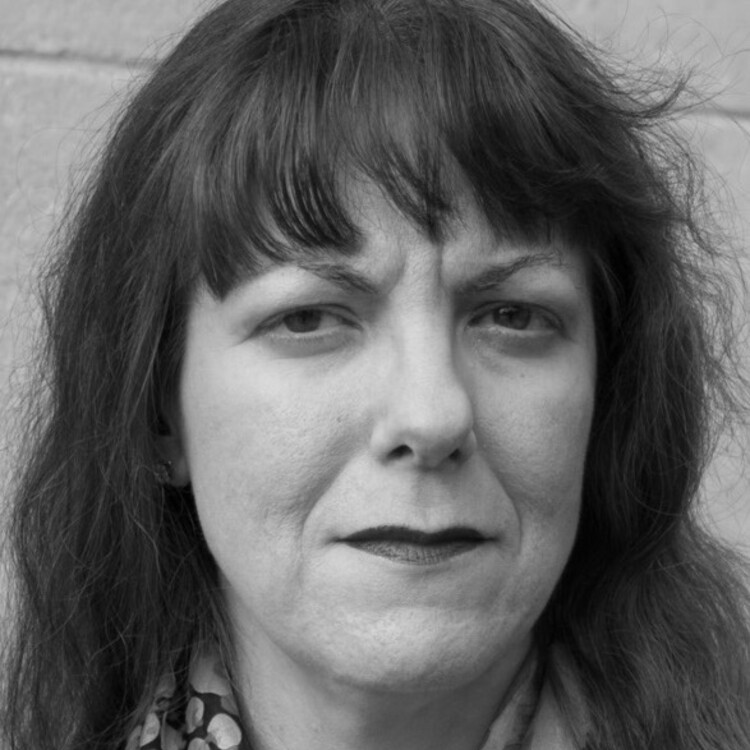
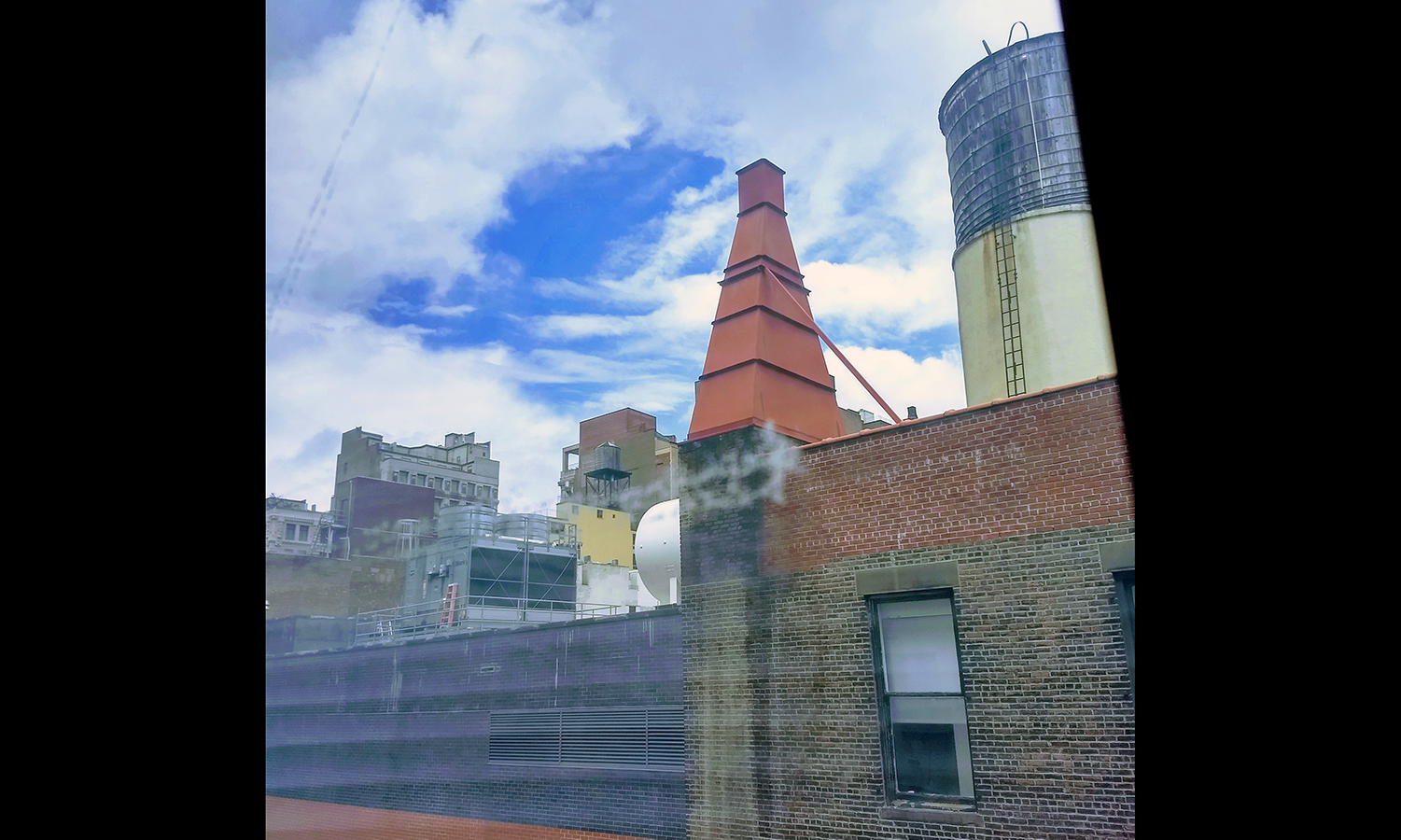
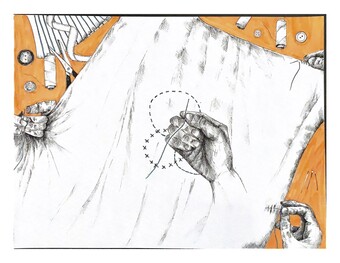






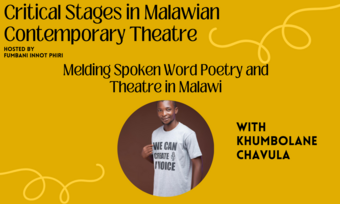


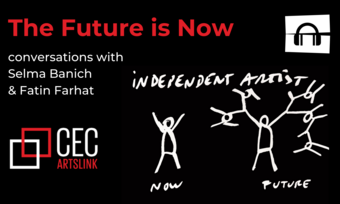

Comments
The article is just the start of the conversation—we want to know what you think about this subject, too! HowlRound is a space for knowledge-sharing, and we welcome spirited, thoughtful, and on-topic dialogue. Find our full comments policy here
Thank you for this article - it is the first I have read since I joined Howlround in the last couple of weeks. I want to connect with the wider theatre community, especially those of us who want to see social justice in the world and inclusivity and a change in the theatre sector. I have submitted an essay about how diverse-led theatre companies and charities are struggling more than most during the pandemic in the UK. I agree with you in that we need to re-imagine the theatre world post pandemic. It will exist, because we are creatives and we cannot stop doing what we are passionate about doing, but the soul of all of us as humans needs to continue to exist. Yasmin Sidhwa - Artistic Director, Mandala Theatre Company, Oxford, UK.
Yasmin! thanks for reading and your response! feel free to write to me anytime. I am on twitter with handle @Csvich . and my website is https://caridadsvich.com
I agree with Melinda. Thank you for taking the time to write this. I just found this site tonight and I admired your words enough to subscribe and send you this note. So here it is again THANK YOU for writing this. I published a short educational story play-within-a-play in the last few weeks. The title is Virus Under the Microscope. I am sending it out to people in the hope they can find a use for it. You can read it at the Brock University COVID-19 Archive here; https://exhibits.library.brocku.ca/s/COVID-Niagara/item/5405#?c=&m=&s=&cv=
All the best to you for great success in the future.
Robert Hicks Niagara Falls Ontario CANADA
thanks for reading!
Caridad, this was a very effective and inspiring essay. We keep thinking we will return to "normal," especially those of us who are now part of institutions, but that "normal" had all sorts of problems, exclusions, blindspots.
thanks Jeff!
Thank you Caridad for writing this piece. Right now, it is so difficult for us all and I really needed to read an article like this. Hope you're doing well or as well as we can be with the current goings-on. Sam
thanks for reading!
Caridad, this is both passionately and rationally articulated-- and you give voice to so many thoughts that have filled my head. thank you for this incredible call to service and action.
thanks for reading!